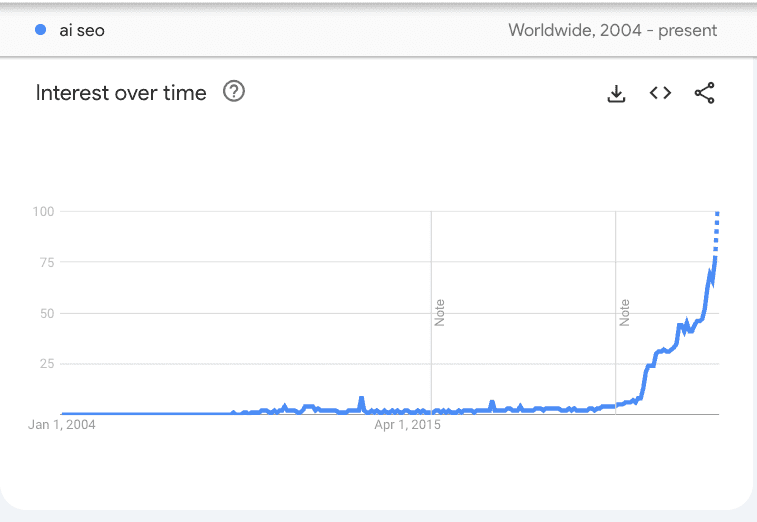SEO isn't dead. It's evolving.
- AI SEO means optimizing to be cited by AI tools, not just ranking on search engines.
- Traditional SEO (keywords, backlinks) is not enough for AI visibility.
- AI tools cite diverse sources: Reddit, blogs, directories, and credible authors.
- The goal shifts from "ranking links" to "being mentioned in AI answers".
Google still drives traffic. Keywords and content still matter.
But a new algorithm is here. It doesn't just crawl your site; it cites it.
Welcome to AI SEO: search powered by large language models like ChatGPT, Claude, Perplexity, and Google’s AI Overviews. If you're only optimizing for traditional search results, you're missing the traffic shift happening now.
What Is AI SEO?
AI SEO is optimizing your brand to be cited by AI tools.
Instead of asking, “How do I rank on page one?”
You ask, “How do I get mentioned in an AI-generated answer?”
AI tools don't rank based on backlinks or keywords alone. They cite trusted sources: Reddit threads, product roundups, comparison blogs, government documents, directories, and mentions from credible authors.
This means traditional SEO tactics aren't enough for AI visibility. You need a new strategy.
Key Differences: AI SEO vs Traditional SEO
Here's the core shift:
- Traditional SEO: Optimize to rank high in search results (like Google) to get clicks on your links.
- AI SEO: Optimize to be directly cited, mentioned, or recommended by AI models when users ask questions.
Traditional search shows users where to find information (a list of links). AI search often gives users the answer directly, synthesized from various online sources.
Why AI SEO Matters Now
Google Trends shows a massive spike in searches for "AI SEO" since 2023. This isn't just hype—it's a signal that marketers and brands are shifting focus to AI-driven search.

AI answers are replacing traditional search results for many queries.
Data shows domains are already getting traffic directly from ChatGPT. Google’s AI Overviews are just the start of this shift.
When users ask, “Best accounting software for freelancers,” they often get a summary with citations, not just a list of links.
If your brand isn’t in those citations, you're invisible in that AI answer.
What AI SEO Looks Like in Practice
- Reddit threads
- “Best of” blog posts
- Authoritative directories
- Product review roundups
- Content by credible authors
- What AI tools say about your brand (or don’t)
- Which sources they cite
- Why competitors appear
- Reverse-engineer citations
- Build trust signals for LLMs
- Prioritize being referenced, not just ranked
Tools like AISEOTracker.com help you do this.
Traditional SEO isn't dead — but it's no longer enough
Smart brands aren't abandoning SEO; they're adapting it.
They still optimize their website, but they also optimize:
- The ecosystem around their site
- The narrative AI tools pick up
- The sources LLMs trust
Ranking #1 on Google won't help if the AI answer doesn't cite you.
TL;DR: What to Do Now
- Scan AI visibility: Use AISEOTracker.com to see where you're cited (or not).
- Map sources: Identify the sources AI tools use in your niche.
- Update strategy: Start optimizing for citations, not just keywords.
This is the new SEO.
It's not a trend; it's the next organic channel.

